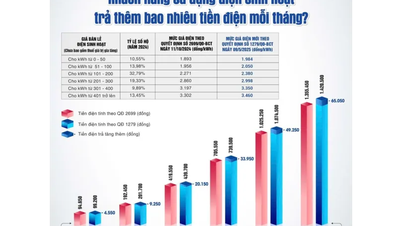Male and female muscles differ in their ability to process glucose and fatty acids, but regular exercise triggers similar beneficial changes in both sexes.
Exercise has powerful effects on skeletal muscle and is the most effective strategy for preventing muscle loss associated with weight loss and type 2 diabetes, according to News Medical.

Exercise has powerful effects on skeletal muscle and is the most effective strategy for preventing muscle loss associated with weight loss and type 2 diabetes.
Research leader Dr. Simon Dreher, University of Tuebingen (Germany), said: Exercise helps maintain insulin sensitivity in healthy people and restore insulin sensitivity in people with prediabetes or diabetes.
Dr Dreher's team analyzed differences in muscle biopsy samples from nine men and 16 women, average age 30, who were overweight or obese and physically inactive.
Participants were asked to perform 1 hour of moderate to vigorous endurance exercise (30 minutes of cycling on an exercise bike, 30 minutes of walking on a treadmill), 3 times a week for 8 weeks.
Biopsy samples were collected at rest before the start of exercise (baseline), after the first exercise session (acute exercise response), and after the last exercise session at the end of 8 weeks.
The results showed that at an early stage, there were differences between men and women in the levels of RNA strands in skeletal muscle involved in glucose homeostasis (controlling blood sugar levels) and insulin signaling (how insulin moves sugar from the blood into cells).

The increased ability to use glucose and lipids for energy production after exercise is often considered key to preventing type 2 diabetes.
The researchers also found that men had more glucose-processing proteins while women had more fatty acid-processing proteins.
This difference in processing may be related to exercise and also influence the development of diabetes, says Dr. Dreher.
Surprisingly, however, after eight weeks of training, levels of protein that converts food into energy increased in both sexes.
This is important because the increased ability to use glucose and lipids for energy after exercise is often considered key to preventing type 2 diabetes, said study leader Professor Cora Weigert, from the Helmholtz Institute for Diabetes Research Munich (Germany).
Repeated exercise has been shown to trigger beneficial metabolic changes in both sexes, according to News Medical.
Source: https://thanhnien.vn/tac-dung-dang-ngac-nhien-cua-tap-the-duc-lien-quan-den-benh-tieu-duong-185240817151606445.htm



![[Photo] General Secretary To Lam meets and expresses gratitude to Vietnam's Belarusian friends](https://vphoto.vietnam.vn/thumb/1200x675/vietnam/resource/IMAGE/2025/5/11/c515ee2054c54a87aa8a7cb520f2fa6e)

![[Photo] General Secretary To Lam arrives in Minsk, begins state visit to Belarus](https://vphoto.vietnam.vn/thumb/1200x675/vietnam/resource/IMAGE/2025/5/11/76602f587468437f8b5b7104495f444d)
![[Photo] General Secretary To Lam concludes visit to Russia, departs for Belarus](https://vphoto.vietnam.vn/thumb/1200x675/vietnam/resource/IMAGE/2025/5/11/0acf1081a95e4b1d9886c67fdafd95ed)


























![[Photo] National Assembly Chairman Tran Thanh Man attends the Party Congress of the Committee for Culture and Social Affairs](https://vphoto.vietnam.vn/thumb/1200x675/vietnam/resource/IMAGE/2025/5/11/f5ed02beb9404bca998a08b34ef255a6)































































Comment (0)